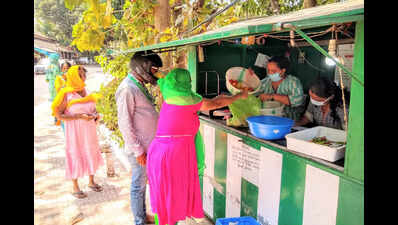ARTICLE AD BOX

Panaji: The Goa State Horticultural Corporation Ltd (GSHCL) is set to upgrade its Panaji and Tonca outlets into minimart-style stores. The revamped stores will feature separate entry and exit points to ensure better crowd management and improved store flow.Replacing the traditional loose-sale format, each of the greens will now be packaged, with each item carrying a bar code label to enable faster and more accurate billing.According to GSHCL managing director Chandrahas Desai, the implementation of the new system is scheduled to begin after monsoon this year. “While vegetables at these outlets will continue to be sold at subsidised rates, the modernised setup is expected to attract more urban consumers seeking both affordability and convenience,” Desai told TOI.To support this upgrade, two additional point-of-sale machines will be installed at each outlet. “This is expected to cut down waiting times and ensure quicker checkouts, especially during peak hours,” Desai said.The Panaji outlet, located within the Panaji municipal market complex, records an average footfall of 250 customers per day, while the Tonca outlet, situated at the entrance of the GSHCL head office, serves about 450 daily visitors.
“The Tonca outlet will undergo structural changes to accommodate this system. It will be designed in an L-shape,” Desai said. “Both locations already have CCTV surveillance systems, ensuring a secure shopping environment.”This infrastructural revamp coincides with the corporation’s larger success story in local agricultural support. Under its ‘Promotion of Vegetables with Assured Market’ scheme, GSHCL recorded growth in farmer engagement and produce procurement over the past six years.Vegetable purchases surged from 965.6 metric tonnes in 2019-20 to 1,662.4 metric tonnes in 2024-25, reflecting a 72% increase.Additionally, farmer remuneration under the scheme also saw a jump from Rs 414.8 lakh in 2019-20 to Rs 684.2 lakh in 2024-25. The programme expanded its network from 1,081 farmers to 1,273, bringing 192 new farmers into its fold since 2019.



.png)
.png)
.png)
















 8 hours ago
6
8 hours ago
6









 English (US) ·
English (US) ·